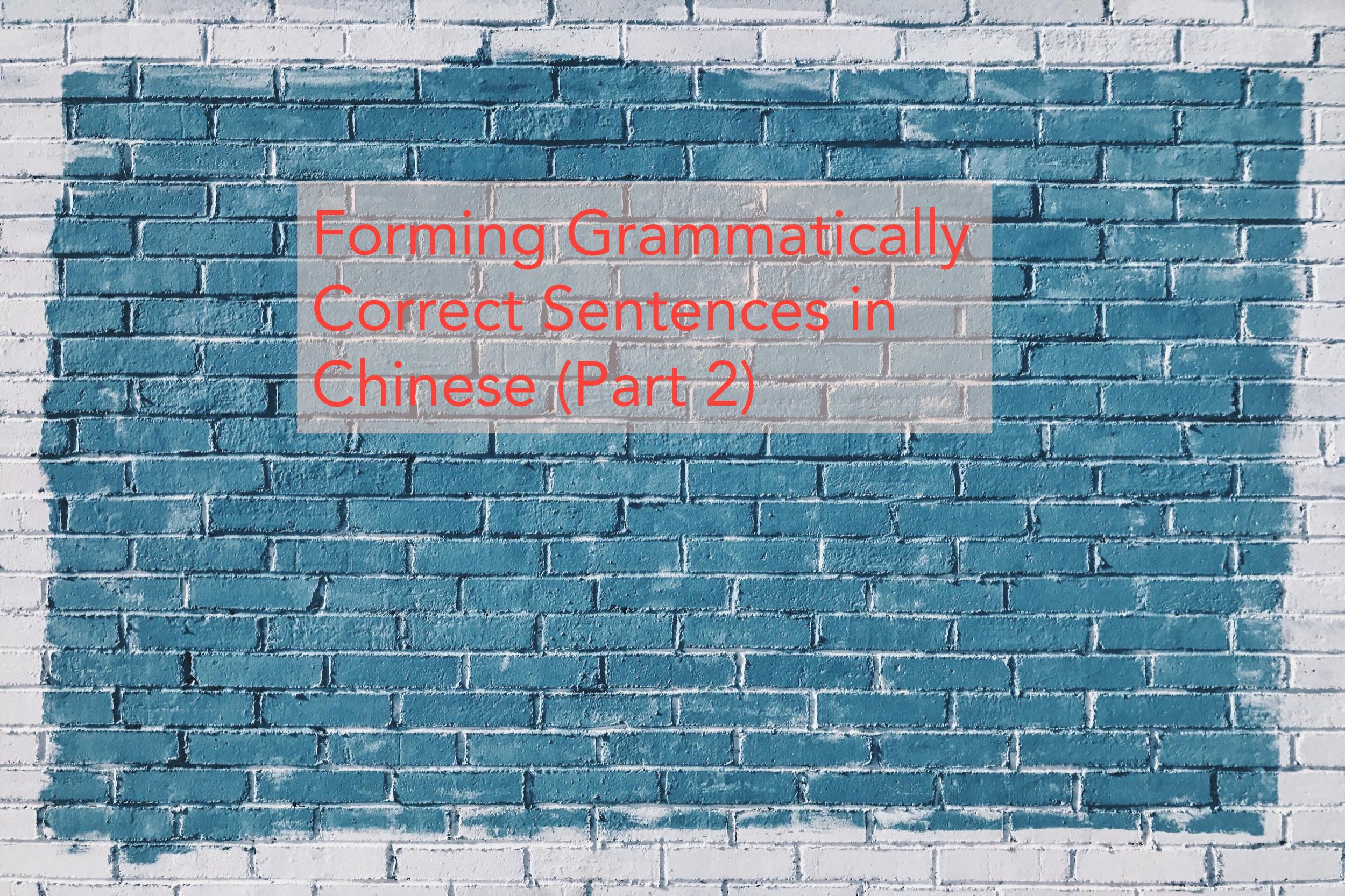Forming sentences. Many students hate them; some love them, but all of them want to make the best of them. But how exactly can your kids do that?
Building sentences is a notoriously difficult task for students, especially when they’re weaker in the Chinese language. Sit them down, ask them to form a sentence from scratch and their minds will probably go blank in an instant.
As a parent, you may have resorted to assignment books, mobile apps, and online video lessons to help your dear child with their sentence forming skills. For some, these external assistances do help. Sadly for some, though, these tactics do not work.
Nothing triggers more conversation in parent circles than tactics to brush up Chinese grades fast—whether to attend extra lessons, which are the best institutions and why isn’t their kid’s grades getting better?
Good sentences are prerequisite for an outstanding piece of writing, just like these 7 expert-approved primary school Chinese composition writing examples.
And like a 100-meter sprinter, your sentences should start strong and finish even stronger. But that doesn’t mean students should launch into an hour-long writing warfare. They can’t write a piece of writing in one sitting, but they can train themselves to write a few sentences at a time.
Here’s how you can start if your kid has difficulty in forming a sentence.
Rule #1 Work on Chinese grammar
There’s a cliché that goes, “Grammar is the secret to good language skills.”
Actually, that’s what we believe.
This is one of the most obvious solutions we can offer: If you’re in doubt, the best way to construct a sentence is to start with the basic structure—subject, verb, and object—and work your way through there. And you’d be amazed at how much more exciting these sentences can get.
For your kid to freshen up their writing, the one thing that they’ll need to do is master the Chinese word order. Check out the grammar structure:
| Subject | Time when | Manner | Location | Instrument | Target | Verb phrase | Time duration | |
| 她 | 有时 | 会迫不得已 | 对朋友 | 说谎 | 。 | |||
| 我 | 上两个星期 | 在外婆家 | 照着网上菜谱 | 给家人们 | 做了一顿饭 | 。 | ||
| 司机 | 三更半夜 | 静悄悄地 | 打开房门 | 。 | ||||
| 我 | 在咖啡店 | 给小辉 | 介绍学校 | 。 |
Ultimately, this is a game of patience: Someday your kid will learn the gist of it. And even if they’re not masters at it, they’ll naturally construct grammatically sound sentences.
Rule #2 Placement of question words
As you can see, creating question sentences follows the same format as a regular sentence.
| Subject | Time when | Manner | Location | Instrument | Target | Verb phrase | Time duration | |
| 谁 | 什么时候 | 在路上 | 用中文 | 问路 | ? | |||
| 她 | 怎么 | 在路上 | 向陌生人 | 问路 | ? | |||
| 他 | 用哪种语言 | 向陌生人 | 问路 | ? | ||||
| 你 | 闲暇的时候 | 做什么 | ? | |||||
| 他 | 在上海 | 住了 | 多久 | ? |
And the rule that students have to remember is to add a question word in the sentence. The Chinese language has a high number of question words, including combinations of question words, but the most common and easiest to remember are:
- 谁 (shéi) – who
- 什么 (shén me) – what
- 哪里 (nǎ lǐ) – where
- 哪个 (nǎ ge) – which
- 什么时候 (shén me shí hou) – when
- 为什么 (wèi shén me) – why
- 怎么 (zěn me) – how
- 多少 (duō shǎo) – how many
- 几 (jǐ) – how many (any number under ten)
Rule #3 Make writing vivid with grammar rules
-
Use complex sentences
What are complex sentences? Let’s see some examples of these sentences in English:
I have a cute little dog and a jet ski too.
Playing is all fun and games until someone gets hurt.
Don’t they sound colloquial? Almost all the sentences we use in our everyday speech are complex. Terms like ‘and’ and ‘just’ are clauses that’ll get your point across with minimum effort and confusion.
Simple sentences aren’t enough to expound on thoughts and richly elaborate thoughts, feelings, and details. Not to mention how frequent use of short, simple sentences can be strange to read.
Sentence variety, such as complex sentences, is not about mere novelty; it’s about an expression of meaning.
Sentences are the engines of creativity, even if there’s only one or two of those great ones in each passage. Bone up on your sentence-writing skills and your kid’s composition will be a great piece of writing.
Complex sentences that students can use in their writing:
Coordinate complex sentences 并列复句:
This sort of sentences harnesses more on parallelism, which means using the same pattern of words to show that two or more words or ideas that are equally important. Some examples are:
即A,又B:单丝不成线,独木不成林。
不是A,而是B:不是意识决定存在,而是存在决定意识。
Cause and effect complex sentences 因果复句:
Pretty self-explanatory, it’s a complex sentence where two ideas can be combined in a way that shows their cause-and-effect relationship. Some terms can be used for these sentences, such as:
因为… 所以…: 因为他有坚定的信念,所以遇到困难从气馁。
既… 就(那么)…:既然你喜欢这道菜,那就多吃一点吧。
Progressive complex sentence 递进复句:
Consisting of two clauses, the sentence shows a progressive relationship, whether its context is positive or negative. And the latter clause almost always indicates a level higher than the clause in front of it. The perfect clause that can illustrate this idea is:
不…但(不光、不只)…:他不仅学习好,而且工作好,尤其是思想好。
Conditional complex sentence 条件复句:
A condition is something that you must do, or a situation that must exist, in order for something else to happen.
只有(除非)a才b:只有努力,才能成功。
无论(任凭)a,都(也)b:无论怎么玩,我都玩不腻这游戏。
Alternative sentence 选择复句:
To make it easier to understand the concept, here’s how it’s like in English:
It’s either this or that; it’s neither this nor that.
In an alternative sentence, an alternative or choice is offered between one statement and another.
与其… 不如…:作为一个有骨气的男儿,与其跪着生,不如站着死。
宁可… 也不…:我们宁可挨批评,也不能昧着良心去搞假呀!
或者… 或者…:武松这一去,或者把老虎打死,或者被老虎吃掉,别无选择。
Successive complex sentence 承接复句:
In a successive complex sentence, consecutive clauses describe things happen or come one after the other.
然后:起初他们问我个人的情况,然后又问到有关我家人的一些问题。
就:吃过了饭,老秦就跟小福去场里打谷子。
Explanation complex sentence 解说复句:
In explanation complex sentence, the subordinate clauses describe the details or explain the subject of the main clause.
战争分为两类:一类是正义的,一类是非正义的。
据说错处有三:一是态度,二是气量,三是年纪。
Purposive complex sentence 目的复句:
In a purposive complex sentence, the subordinate clause states the purpose, and the main clause explains the action taken for this purpose.
省得:答题之前,我们应仔细思考,省得过后又来修改。
以免:你快让他进去,以免闹情绪。
Adversative complex sentence 转折复句:
Basically, the two clauses in this sentence express meanings that are opposite to each other.
虽然(虽、尽管)…但是(但、可是、却、而、还是)…:虽然我一见便知是闰土,但又不是我记忆上的闰土了。
竟然:我们几个苦口婆心地给他讲道理,他竟然一句也没听进去。
2) Apply analogies when appropriate
As rigid as Chinese grammar can be, it’s also impossibly flexible. Look at this great example:
春天的花儿是大自然的杰作,温婉轻柔地随风摇曳。
A few things your kid can do to fend off mediocrity in their writing:
Elaborate based on the definition of the term. In this case, we use the example of a verb:
俯瞰
Sentence: 我站在广场上俯瞰美丽的风景。
俯瞰 means ‘overlook’ in English.
Extending the definition of a term can make an otherwise simple sentence somewhat interesting. And these terms can be a noun, verb, adjective, etc.
While the elementary construction for sentences is grammatically correct, we’d encourage students to avoid repeating the same style over and over.
It’s not a big deal but can you imagine eating nothing but bread and eggs for the rest of your life?
Some analogy terms are quite useful to jazz up writing. For example:
仿佛:今天冷极了,风刮在脸上仿佛刀割一样。
See, your sentences don’t have to say much. They just have to say the right things. Our imaginations will fill in the blanks.
Rule #4 Consider your context
Read this sentence:
他在吃饭的时候,突然想到他们之前发生的那些事。
There’s nothing wrong with it, but…
Isn’t it slightly awkward without any context?
Structurally, the sentence is perfectly fine. However, without context, readers can’t figure out what the discourse is really about. So, it’s best not to use pronoun unless the sentence is continual of the previous sentences.
How to form sentences in Chinese
Writing is a great way to express oneself; as long as the one holding the pen is able to work through their own thoughts and able to use the various techniques to freshen up their writing. With all of those above constructions to build sentences, your little ones will no doubt write more varied and powerful sentences.
To sum it up, here’s what to do to effectively make great sentences in a composition:
Grasp the characteristics of words, and:
- Elaborate terms and make complete sentences
- Create more diversity by mixing up nouns, verbs, adjectives, etc.
- Practice often
It’s normal to stumble a bit at first when trying to form a sentence effortlessly. If your kid is weak in a certain area of Chinese, carve out time to fix these trouble spots. And always keep in mind: “Monitoring is a powerful approach.”
If it seems like your kid isn’t improving, here’s a better strategy: strengthen language foundation. Here’s how to improve Chinese composition with just 10 minutes per day.
Or you can sign your kid up for an online live Chinese lesson!






